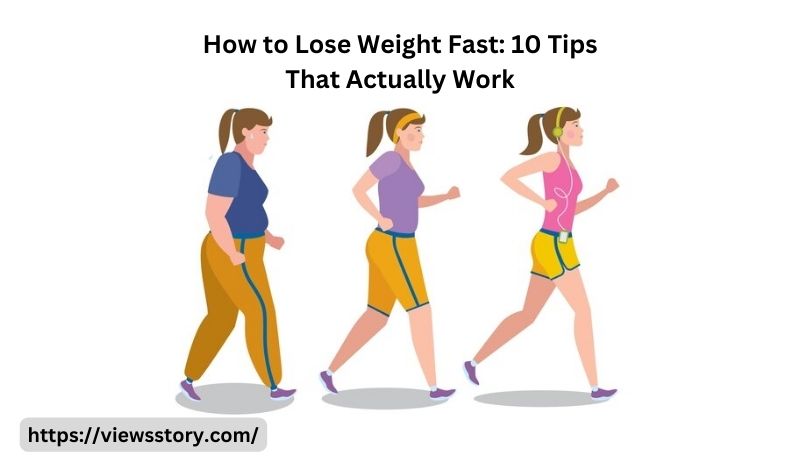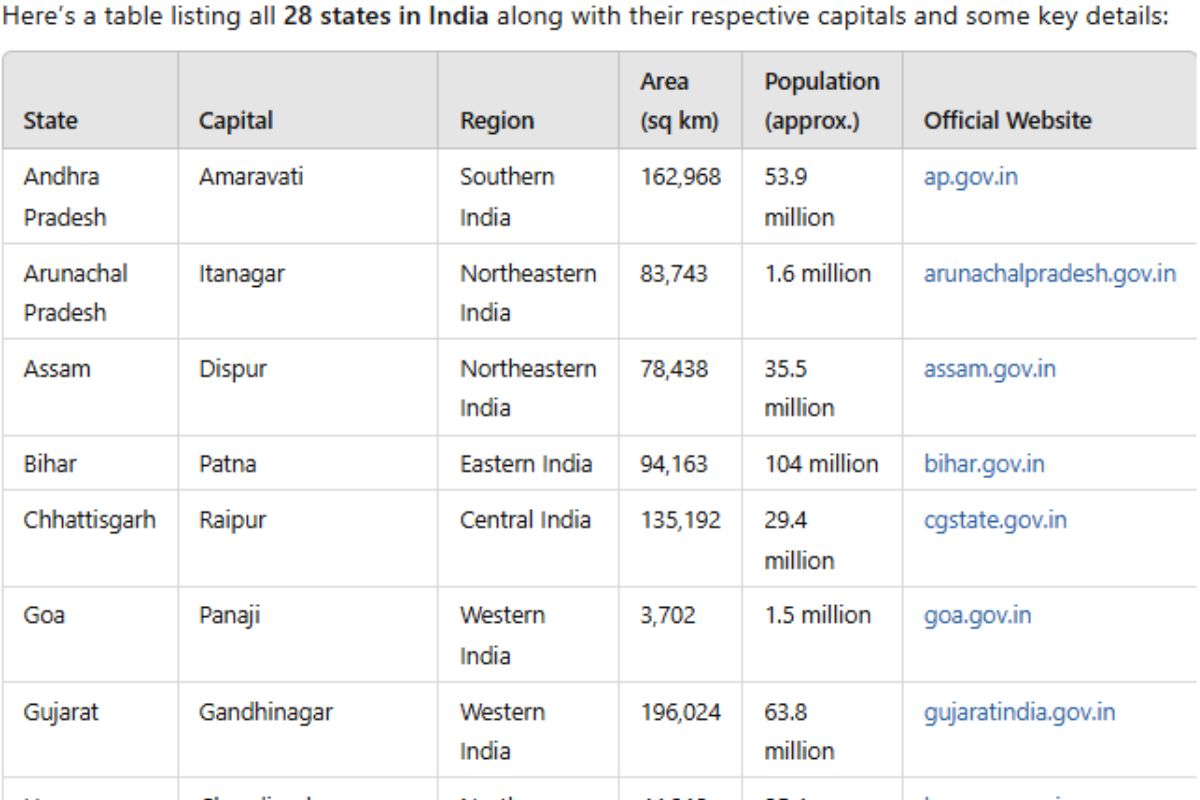1. How to Lose Weight Fast: 10 Tips That Actually Work

Losing weight quickly is a common goal, but it’s essential to do it in a healthy and sustainable way. Here are ten tips that can help you shed those extra pounds:
- Balanced Diet: Focus on a balanced diet that includes plenty of fruits, vegetables, lean proteins, and whole grains.
- Portion Control: Be mindful of portion sizes to avoid overeating.
- Regular Exercise: Incorporate both cardio and strength training exercises into your routine.
- Stay Hydrated: Drink plenty of water to stay hydrated and support your metabolism.
- Sleep Well: Aim for 7-9 hours of quality sleep each night, as poor sleep can disrupt weight loss efforts.
- Mindful Eating: Pay attention to what you eat, savor your food, and avoid distractions while eating.
- Set Realistic Goals: Aim for a healthy and sustainable weight loss of 1-2 pounds per week.
- Track Progress: Keep a food journal or use a weight loss app to monitor your progress.
- Manage Stress: Stress can lead to overeating, so practice stress-reduction techniques like meditation or yoga.
- Seek Professional Help: If you have specific health concerns or need personalized guidance, consult a healthcare professional or a registered dietitian.
Also Read : How Calories Are Calculated
2. The Fastest Way to Lose Weight, According to Science
Science emphasizes that there’s no magic bullet for rapid weight loss. The key to effective weight loss lies in creating a calorie deficit through a combination of diet and exercise. Quick fixes or extreme diets often lead to temporary results and can be harmful in the long run. Consult a healthcare professional for a personalized plan.
3. How to Lose 10 Pounds in a Week (Safely and Effectively)
Losing 10 pounds in a week is not a realistic or healthy goal. Rapid weight loss can result in muscle loss, nutritional deficiencies, and other health issues. Instead, focus on steady, safe weight loss by making sustainable lifestyle changes. Consult with a healthcare professional to set realistic goals.
4. 7-Day Weight Loss Meal Plan to Help You Shed Pounds
A well-balanced, 7-day meal plan can kick-start your weight loss journey. Include a variety of foods, control portion sizes, and ensure you meet your nutritional needs. Consult a dietitian to create a personalized meal plan that suits your preferences and goals.
5. How to Lose Weight and Keep It Off for Good
Sustainable weight loss is about creating lasting habits. It’s essential to maintain a healthy diet and exercise routine even after reaching your goal weight. Focus on building a lifestyle that supports your long-term health.
6. 10 Weight Loss Mistakes to Avoid
Avoid these common weight loss mistakes:
- Extreme dieting
- Skipping meals
- Relying on supplements
- Unrealistic expectations
- Ignoring portion sizes
- Lack of physical activity
- Emotional eating
- Overlooking sleep
- Crash diets
- Impatience
7. The Best Exercises for Weight Loss
Incorporate a mix of cardiovascular exercises (e.g., running, cycling) and strength training (e.g., weightlifting) to maximize weight loss. Consult with a fitness expert for a tailored exercise plan.
8. How to Boost Your Metabolism and Burn More Calories
Boosting your metabolism involves building lean muscle, eating regular meals, staying hydrated, and getting enough sleep. Spicy foods and green tea may also have a minor impact on metabolism.
9. Healthy Weight Loss Snacks That Will Satisfy Your Cravings
Opt for snacks like Greek yogurt, mixed nuts, fruit slices, or vegetables with hummus to satisfy your cravings while keeping your calorie intake in check.
10. How to Stay Motivated on Your Weight Loss Journey
Staying motivated is crucial for success. Set achievable goals, reward yourself for milestones, find a supportive community, and remind yourself of the reasons you started your weight loss journey. Consistency and a positive mindset are key to staying motivated.
FAQ
Certainly, I can provide answers to some frequently asked questions related to weight loss:
Q1: Is it possible to lose weight fast without any effort?
A1: Rapid, effort-free weight loss is not realistic or sustainable. Healthy weight loss typically requires a combination of a balanced diet and regular exercise.
Q2: Can I spot-reduce fat from a specific area, like my belly or thighs?
A2: Spot-reducing fat is a common misconception. Weight loss generally occurs throughout the body and cannot be targeted to specific areas.
Q3: Are fad diets effective for quick weight loss?
A3: Fad diets may offer rapid results, but they often lack proper nutrition and can lead to health problems. Sustainable, long-term weight loss is best achieved with a balanced and healthy approach.
Q4: Is it safe to lose 10 pounds in a week?
A4: Losing 10 pounds in a week is not safe and is usually associated with extreme methods. Such rapid weight loss can lead to muscle loss and nutritional deficiencies.
Q5: Should I completely eliminate certain foods to lose weight?
A5: Restricting specific foods may lead to nutritional imbalances. It’s better to practice moderation and focus on portion control and balanced eating.
Q6: How can I avoid emotional eating while trying to lose weight?
A6: Strategies to prevent emotional eating include mindful eating, finding alternative stress-relief techniques, and seeking support from friends, family, or professionals.
Q7: What is the role of genetics in weight loss?
A7: Genetics can influence metabolism and body composition, but they do not determine your destiny. Healthy lifestyle choices can still lead to successful weight management.
Q8: How important is exercise for weight loss?
A8: Exercise is an essential component of a weight loss plan, as it helps create a calorie deficit and promotes overall health. A combination of cardiovascular and strength training exercises is recommended.
Q9: Is it possible to lose weight without counting calories?
A9: Counting calories is one approach, but it’s not the only way to manage your weight. You can also focus on portion control, making healthy food choices, and listening to your body’s hunger cues.
Q10: How do I deal with weight loss plateaus?
A10: Plateaus are common during weight loss. To overcome them, you can adjust your exercise routine, vary your diet, and seek support from a healthcare professional or a registered dietitian.
Remember that weight loss is a unique journey for each individual, and what works best may vary. It’s essential to consult with a healthcare professional or registered dietitian for personalized advice and guidance on your weight loss goals.





